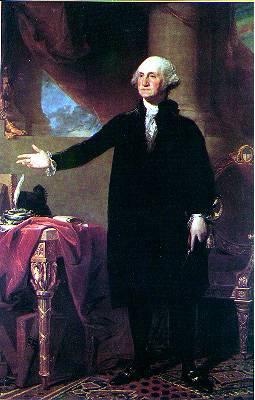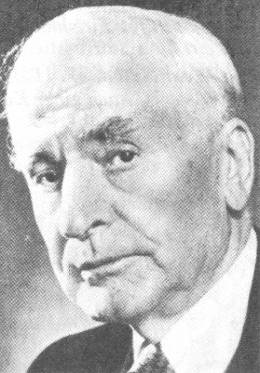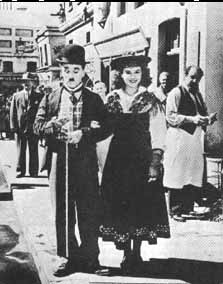NAVIGATION COLUMN
Home Page
Yahoo Groups:
History 1 Day 2
Nuremburg Data
Daily History Pages:
In Calendar Form
FAIR USE NOTICE: This site could contain copyrighted material the use of which has not always been specifically authorized by the copyright owner. We are making such material available in our efforts to advance understanding of historical, political, human rights, economic, democracy, scientific, environmental, and social justice issues, etc. We believe this constitutes a 'fair use' of any such copyrighted material as provided for in section 107 of the US Copyright Law. In accordance with Title 17 U.S.C. Section 107, the material on this site is distributed without profit to those who have expressed a prior interest in receiving the included information for research that could include educational purposes. If you wish to use copyrighted material from this site for purposes of your own that go beyond 'fair use', you could most likely need to obtain permission from the copyright owner.
|
September 19

0086 Birth: Antoninus Pius, 15th Roman emperor (138-161).

1356 The Hundred Years War: English Prince Edward (The Black Prince) defeats the French at the Battle of Poitiers, capturing the French king. Note: The link provided is an excellent resource for gaining an understanding of this long and complicated conflict, of which this item is a critical event.
1544 Francis, the king of France, and Charles V of Austria sign a peace treaty in Crespy, France, ending a 20-year war.

1655 Birth: Jan Luyts, in the Netherlands, scholar, physicist, mathematician, astronomer.

1692 Giles Corey is pressed to death for standing mute and refusing to answer charges of witchcraft brought against him; the only person in America to have suffered this punishment. Note: By refusing to stand trial, Giles provokes this long-stricken penalty; the right to remain silent is not, at this point in time, an option.

1737 Birth: Charles Carroll, signer of the American Declaration of Independence. "Charles Carroll was born into a wealthy Roman Catholic family in Annapolis Maryland. He began his rather remarkable formal education at the age of eight, when he was packed off to France to attend a Jesuit College at St. Omer. He graduated the College of Louis the Grande at age Seventeen and continued practical studies in Europe until, at the age of twenty-eight, he returned to his home. Into the radical climate produced by the Stamp Act, walked a Highly refined Gentleman with all of the education and experience that might be expected of an emissary of the finest courts in Europe. Charles Carroll is said to have identified with the radical cause at once, and he proceeded to work in the circles of American patriots. In 1772 he anonymously engaged the secretary of the colony of Maryland in a series of Newspaper articles protesting the right of the British government to tax the colonies without representation. Carroll was an early advocate for armed resistance with the object of separation from Gr. Britain. However, his native colony was less certain in this matter and did not even send a representative to the first Continental Congress. He served on the first Committee of Safety, at Annapolis, in 1775, and also in the Provincial Congress. He visited the Continental Congress in 1776, and was enlisted in a diplomatic mission to Canada, along with Franklin and Chase. Shortly after his return, the Maryland Convention decided to join in support for the Revolution. Carroll was elected to represent Maryland on the 4th of July, and though he was too late to vote for the Declaration, he did sign it. He served in the Continental Congress, on the Board of War, through much of the War of Independence, and simultaneously participated in the framing of a constitution for Maryland. In 1778 he returned to Maryland to participate in the formation of the state government. He was elected to the Maryland Senate in 1781, and to the first Federal Congress in 1788. He returned again to the State Senate in 1790 and served there for 10 years. He retired from that post in 1800. Charles Carroll was the last surviving member of those who signed the Declaration. He died, the last survivor of the signers of the Declaration, in 1832 at the age of ninety-six."

1777 US Revolutionary War: American forces under General Horatio Gates meet British troops led by General John Burgoyne at Saratoga Springs, New York for the Battle of Freeman's Farm (Bemis Heights) or the first Battle of Saratoga.
1783 The first hot-air balloon is sent aloft at Versailles with animal passengers including a sheep, rooster and a duck.
1788 Charles de Barentin becomes Lord Chancellor of France.

1796 US President George Washington's farewell address is published.

1839 Birth: George Cadbury, English chocolate manufacturer and social reformer. He will go on to expand his father's chocolate business and establish a model village for his workers at Bourneville.
1841 The first railway to span a frontier is completed between Stousbourg and Basle, in Europe.

1848 Bond in the US and Lassell in England, independently discover Hyperion, a moon of Saturn.
1849 The first commercial laundry is established, in Oakland, California.
1862 US Civil War: Union troops defeat a Confederate force in Luka, Mississippi.

1863 US Civil War: In Georgia, the Battle of Chickamauga continues as Union troops under George Thomas clash with Confederates under Nathan Bedford Forrest.

1864 US Civil War: The third Battle of Winchester, Virginia is fought.
1876 American inventor, Melville Bissel, patents the first carpet sweeper.
1879 Birth: Irvin Westheimer, who will found the American 'Big Brothers' movement.

1881 Death: James A. Garfield, US president, in Elberon, New Jersey, of gunshot wounds inflicted on 2 July by a disgruntled office-seeker. Vice President Chester Arthur is sworn in as his successor.
1893 With the signing of the Electoral Bill by Governor Lord Glasgow, New Zealand becomes the first country in the world to grant national voting rights to women. The bill is the outcome of years of suffragette meetings in towns and cities across the country, with women often traveling considerable distances to hear lectures and speeches, pass resolutions, and sign petitions. New Zealand women first go to the polls in the national elections of November 1893. Note: The United States will grant women the right to vote in 1912, and Great Britain will guarantee full voting rights for women in 1928.
1898 Birth: Giuseppe Saragat, president of Italy (1964-71).
1898 Volkishness: Father Georg (Adolf Josef Lanz) assumes teaching duties in the seminary at Heiligenkreuz (A). (Daim)

1900 President Loubet of France pardons Jewish army captain Alfred Dreyfus, twice court-martialed and wrongly convicted of spying for Germany.
1904 Birth: Bergen Evans, educator and author who will write the Dictionary of Contemporary American Usage.
1915 Birth: Elizabeth Stern, Canadian pathologist who first published a case report linking a specific virus to a specific cancer.

1918 WW1: General Allenby begins the Jordan Valley offensive, and by dawn on September 20, the Turkish Eighth Army has ceased to exist. Allenby's decisive victory at Megiddo, which guarded the main pass through the Carmel Mountains, is one of the most brilliant operations in the history of the British army. During the next 38 days, Allenby's troops advance more than 360 miles, taking 76,000 prisoners (4,000 of them German and Austrian).
1918 WW1: American troops of the Allied North Russia Expeditionary Force receive their baptism of fire near the town of Seltso against Soviet forces.

1928 American icon Mickey Mouse makes his film debut at Colony Theatre, New York City. His voice and creator Walt Disney owed a debt to his wife, who advised him that Mickey Mouse was a better name than "Mortimer Mouse." Mickey stars in Steamboat Willie, his first sound film, and will appear in over one hundred other movies, and later, in Disney's two popular theme parks. Within ten years, Mickey Mouse is one of the most loved, most well-known figures in the world. In the time of the Great Depression, plucky Mickey becomes an all-time favorite. Among the leagues of fans are US President Roosevelt, Britain's King George V and Italy's Mussolini.
1932 Russia joins the League of Nations.

1934 US Secretary of State Cordell Hull denounces all political and racial boycotts in any form. Note: This is in response not only to the Nazi boycotts and restrictions of 'non-Ayrans,' but also to the economic boycott of Nazi Germany by many Jewish groups.

1939 WW2: From occupied Danzig, Hitler makes his first speech of World War Two, which officially began on the first with his invasion of Poland. "Meantime, Russia felt moved, on its part, to march in for the protection of the interests of the White Russian and Ukrainian people in Poland. We realize now that in England and France this German and Russian cooperation is considered a terrible crime. An Englishman even wrote that it is perfidious - well, the English ought to know. I believe England thinks this cooperation perfidious because the cooperation of democratic England with bolshevist Russia failed, while National Socialist Germany's attempt with Soviet Russia succeeded..."

1939 WW2: Lavrenti Beria sets up a Directorate for Prisoners of War and establishes camps for 240,000 Polish POWs in Soviet custody; about 37,000 will be used as forced-labour. Note: Beria will be one of those hovering around Stalins death bed, and will, due to his position as head of the Soviet secret police apparatus, emerge as the obvious candidate for succession. Krhuschev (see his 'Memoirs,' highly recommended reading) and his group will undermine Beria's authority in the Party by spreading rumors that he was inclined to take in homeless girls, preferably underage, drug them and take advantage of them. Whether there is any truth to the story has never been established, to my knowledge, but it will be enough to spell Beria's eventual doom.
1939 Diary of Leon Gladun: We hadn't ridden far when at our first rest suddenly there's a fresh report--we're returning to our barracks because Russia has pulled back its army due to the ultimatum issued by France! A stone drops from my heart--we're galloping back to smash those backstabbing Russian swoloczy and put things in order. And it's probably the end for the Germans as well as Italy, Belgium, Yugoslavia, Rumania and Hungary have declared war on Germany.

1941 Holocaust: Heinrich Jöst, a German sergeant, smuggles a camera into the Warsaw ghetto, and against all regulations, photographs the suffering and misery of the Jews trapped inside. (Apparatus)

1941 Barbarossa: Hitler's drive south nets the city of Kiev in the Ukraine. 650,000 Russian soldiers are captured, the largest number in any war, ever. (Clark II)
1944 WW2: Finland signs an armistice with the Allies.
1944 WW2: As Soviet forces approach Klooga, in Estonia, the Germans kill almost all of the 3,000 surviving slave laborers, including 1,500 Jews from Vilna, 800 Soviet prisoners-of-war, and 700 Estonian political prisoners. Only 85 inmates survive. (Atlas)

1945 William Joyce, also known as "Lord Haw-Haw," is sentenced to death by a British court for his role as a Nazi propagandist.
1948 Moscow announces that it will withdraw all soldiers from Korea by the end of the year.

1952 Charlie Chaplin is under investigation by HUAC on suspicion of being a 'subversive.' Note: He will eventualy move to England in disgust.
1955 After a decade of rule, Argentina President Juan Peron is ousted by the army and navy.
1957 The US conducted its first underground nuclear test in the Nevada desert.

1959 Capitalists and Communists: In a case of carrying the Cold War too far, Soviet leader Nikita Khruschev is not allowed to visit Disneyland, on Mickey's birthday yet, due to 'security reasons.' Khrushchev reacts angrily.

1960 Capitalists and Communists: Cuban leader Fidel Castro, in New York to visit the United Nations, checks out of the Shelburne Hotel angrily after a dispute with the management.
1960 Traffic wardens and parking tickets are seen for the first time in London as 344 tickets are issued. Britain's first parking ticket is issued, to Dr Thomas Crieghton, who had parked his car outside a London hotel while treating a patient.
1971 Death: William F. Albright, aged 80, American Methodist archaeologist. Professor of Semitic languages at Johns Hopkins for nearly 30 years, he penned over 1,000 articles and books, and led several Near Eastern expeditions which excavated the biblical sites of Gibeah, Bethel and Petra.
1980 A Titan II missile explodes at Damascus, Arizona.
1981 Satellites China 10 and 11 are launched into Earth orbit by a B-1 rocket.

1983 St. Christopher-Nevis gains independence from Britain.
1983 Lebanese army units defending Souk el-Gharb are supported in their effort by two US Navy ships off Beirut.
1988 Israel successfully launches the Horizon-I test satellite, for secret military reconnaissance.
1990 Iraq begins confiscating foreign assets of countries that are imposing sanctions against the Iraqi government.
1991 The UN Security Council authorizes Iraq to sell $1.6 billion in oil to buy food and essential supplies.
1992 The UN Security Council recommends suspending Yugoslavia due to its role in the Bosnian civil war.
1994 The first 3,000 US troops enter Port-au-Prince, Haiti, on a mission to enforce the return of exiled President Jean-Bertrand Aristide.
1995 The Washington Post publishes the 35,000-word manifesto written by the notorious Unabomber, who had says he won't try to kill again if it is published. The Post and the New York Times share the costs of publication, as well as the shame of giving in to terrorist demands.
1995 The US Senate passes a welfare overhaul bill.
1995 The commander of American forces in Japan and the US ambassador apologize for the rape of a schoolgirl committed by three US servicemen.
1996 The government of Guatemala and leftist rebels sign a peace treaty to end their long war.

2001 Hope all but disappears that anyone will be found alive in the rubble of the World Trade Centre.

2001 In the aftermath of the 911 terrorist attacks, the US Defense Department orders deployment of combat aircraft to the Persian Gulf, Indian Ocean, Uzbekistan and Tajikistan. The following day, the Army admits that ground troops are being sent to the region.

2001 US Presdent Bush continues the push to enlist global support in the battle against terrorism, meeting with the Indonesian president and calling leaders of South Africa and South Korea; foreign ministers of Russia and Germany meet
with Powell.

2001 Pakistani President Pervez Musharraf seeks to reassure his country that the war against terrorism does not target Islam or people of Afghanistan as thousands of Afghans flee toward the borders.
2002 In Ivory Coast, around 750 rebel soldiers attempt to overthrow the government. US troops will land on September 25th to help move foreigners, including Americans, to safer areas.
2004

2004

2004

^ Top of Page ^
Click Here to email the Webmaster of this site.
Web Page Design by Nathan
This page was last updated on September 12, 2005
|
